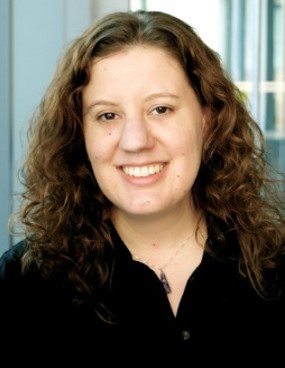 By Brian Powell
By Brian Powell
Flinn Foundation
For many Flinn Scholars, the three-week summer seminar after their freshman year is the college student’s first travel experience to a foreign land.
That was the case for Class of 2000 Flinn Scholar Rachel Wellhausen, who along with her class spent three weeks in Hungary and Romania. The trip sparked an interest in Eastern Europe that has turned out to be the focus of international-political-economy research at some of the most prestigious universities in the world.
Wellhausen is the sole author of a book that will be published later this month by Cambridge University Press, The Shield of Nationality: When Governments Break Contracts with Foreign Firms, which includes quantitative analysis and case studies that draw on field research in Ukraine, Moldova, and Romania.
In the book, the University of Arizona graduate and current University of Texas at Austin assistant professor examines multinational corporations’ relations with governments in developing countries.
“I explain why governments can sometimes expropriate foreign-owned property, even in an era in which global capital is expected to have significant power. I point to a new factor—the nationality of multinational corporations—as a source of political risk,” she says.
The subject of the book originated with her Ph.D. dissertation and her time in Eastern Europe and Russia, where as a Flinn Scholar she studied the Russian language during her junior year.
“I became interested in how these governments balanced the need for economic development and encouraging foreign investment, with the desires to cater to various domestic interests and discourage or even expropriate foreign investment,” Wellhausen says.
A Political Economy Expert
Wellhausen describes international political economy as a subfield of international relations that deals with how politics collides with economics around issues such as international trade, finance, and investment.
Wellhausen co-edited the 2013 book, Production in the Innovation Economy, featuring authors from political science, economics, business, employment and operations research, aeronautics and astronautics, mechanical engineering, and nuclear engineering. In addition to synthesizing the contributions, Wellhausen was involved for several years in interdisciplinary research on the subject of links between manufacturing and innovation in the United States and the world economy. This included interviewing a number of small and medium manufacturing firms in Arizona, Ohio, and Massachusetts.
“In it, we explore the extent to which manufacturing is key to an innovative and vibrant economy,” Wellhausen says.
In the book, she discusses Ukraine’s problems in its political economy between the 1990s and 2011. Today, those problems have extended to violent conflict, yet Wellhausen hopes the Ukrainian economy can prove resilient.
“Foreign investors seem to start to ‘come back’ to a country once peace is on the horizon,” she says. “Hopefully this trend, which we found from statistical analysis of countries worldwide, will play out in Ukraine.”
Wellhausen has been an assistant professor in the department of government, or political science, at the University of Texas since 2012. She teaches undergraduate and graduate courses in international political economy and also conducts research. Wellhausen has affiliations with the McCombs School of Business and the Center for Russian, East European and Eurasian Studies at the University of Texas.
She was a postdoctoral research associate at Princeton University for a year before moving to Austin. Her political-science dissertation at Massachusetts Institute of Technology, “When Governments Break Contracts: Foreign Firms in Emerging Economies,” won the 2011-12 Mancur Olson Award for best dissertation in political economy from the American Political Science Association; as well as the Lucian Pye Award for being named Best Dissertation by the MIT Department of Political Science Committee. Previously, Wellhausen received a master of science with distinction in European political economy at the London School of Economics and Political Science in 2005.
“In my work thus far, I have focused on foreign investment and how firms’ strategies and government policy-makers relate to each other,” Wellhausen says. “I am also interested in how politics affects governments’ ability to borrow in international markets, how political and financial crisis affects economic development, and how science and technology’s economic impact shapes the policies governments choose.”
After receiving her master’s degree, Wellhausen spent a year working in the political-risk industry before realizing she liked the research more than selling the product.
“Academia has allowed me to pursue questions I find interesting and important while, I hope, enlightening students who might otherwise not realize how much is riding on their government’s exchange-rate policy,” she says.
Flinn Travels Shape Career
The Class of 2000 Flinn Scholar graduated from Dobson High School in Mesa before attending the University of Arizona, where she earned a B.A. in economics, English, and interdisciplinary studies, which included Russian and German studies and political science.
And she was honored with some of the university’s most prestigious awards. Wellhausen received the Robie Gold Medal for Outstanding University-wide Senior, and was named Outstanding Honors College Senior and Outstanding Economics Senior.
As a Flinn Scholar, she traveled for the three-week summer seminar to Hungary and Romania, which today is held in China. During her junior year, Wellhausen studied Russian in Irkutsk, Russia, which is one of the largest cities in Siberia. Since then, she has traveled to and conducted research about many of the countries in the region, which has enabled her to analyze countries in other regions of the world.
“I draw on the strong background I have in the region even as I work on research questions that apply to developing and middle-income countries worldwide,” Wellhausen says.
Like so many of the program’s alumni, Wellhausen points to the value of the community formed during the Flinn Scholarship program that extends well past the four years of undergraduate education at an Arizona public university.
“Several of the ‘Flinns’ have become life-long friends, and I cannot imagine my undergraduate education without it,” Wellhausen says. “I am still very grateful for the opportunities the Scholarship gave me.”